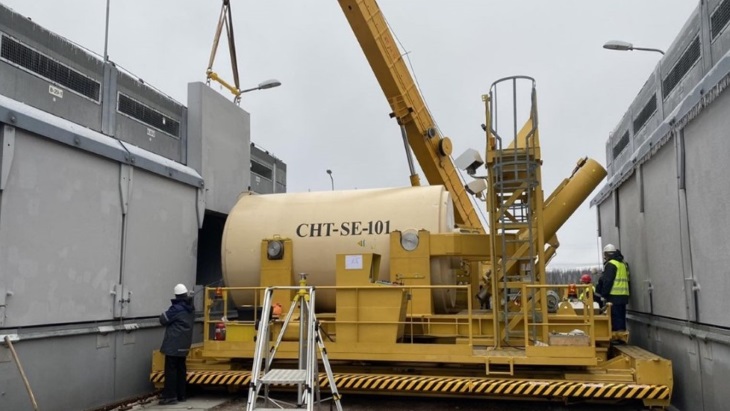The event was witnessed by Roman Abramovsky, minister of environmental protection and natural resources of Ukraine, Grigoriy Plachkov, chairman of the State Nuclear Regulatory Inspectorate of Ukraine, Serhiy Kalashnyk, head of the State Agency of Ukraine for Exclusion Zone Management, Volodymyr Peskov, ChNPP acting general director, and Sergiy Tarakanov, general director of Holtec Ukraine.
The first fully loaded DWC had been placed in storage on 18 November. Each of the loaded DWCs contained 93 used fuel assemblies from Chernobyl’s aging storage facility.
Holtec describes ISF-2 as the world’s most complex dry storage project with numerous challenges that had stymied the project for over a decade before Holtec took over and completed it. It handed over the complex to the owner in December 2019.
Use of DWCs render any risk of leakage orders of magnitude more non-credible than required by regulations in the USA and most regulatory regimes, Holtec said. The deployment of a forced gas dehydrator ensured the extraction of the last trace of entrained moisture from the fuel for guaranteed storage safety, it added.
Each assembly was separated into three parts (two fuel bundles and an activated connecting rod) in a purpose-built hot cell (the world’s largest) before it is packaged in the double-walled transportable canisters.
“This event has now paved the way for the licensee to make preparations for obtaining a full operating licence," Plachkov said. "The transfer of ChNPP Spent Nuclear Fuel to a long-term safe dry storage at ISF-2 over the next 10 years is one of the key milestones in the transformation of the Chernobyl NPP into an ecologically safe system," he added.
ISF2, which is supported by the Nuclear Safety Account managed by the London-headquartered European Bank for Reconstruction and Development, will provide for the processing and storage of the used nuclear fuel from units 1, 2 and 3, which is required for the decommissioning of the Chernobyl plant.
Peskov thanked the EBRD and its donor countries for their support of the ISF-2 project.








_94566.jpeg)






